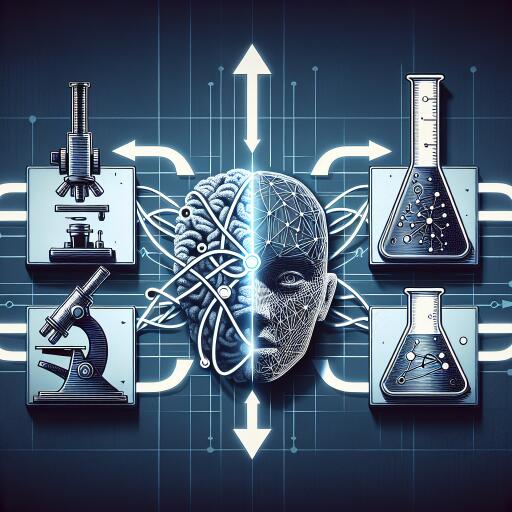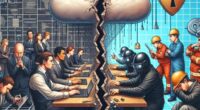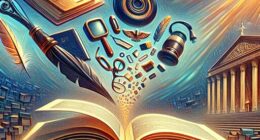Establishing Benchmarks For Use Of AI In Fundamental Science: Two Proposals To Move Forward
Currently, I’m immersed in a collaborative project to draft a roadmap detailing how infrastructures and methods can foster the application of Artificial Intelligence (AI) in fundamental scientific research. During this process, I’ve crafted a paragraph discussing benchmarks and standards, a topic I believe may intrigue readers. Below, I share these insights with added explanations, allowing it to function as both a reminder of my original draft and an evolving piece in a collaborative paper, inevitably subject to multiple iterations and revisions.
Benchmarking and Standards for AI in Fundamental Science
1. Introduction
Over the past two decades, there has been a proliferation of machine learning-powered methodologies. These have been ingeniously adapted and utilized by the community of fundamental scientists for extracting optimal inference from complex datasets. They play crucial roles in instrument optimization, reconstruction and pattern recognition processes, and form a backbone for various experimental activities.
This wide array of techniques represents both an asset and a challenge. Specifically, when faced with a novel problem, it might not be immediately apparent which tool is the most efficient and effective. This lack of clarity can substantially increase the time required to develop solutions and to achieve optimal results.
Developing a comprehensive knowledge base on the most effective tools suitable for distinct task categories common in fundamental science experiments provides a potential solution. However, this is a complex, long-term endeavor that necessitates contributions from the entire scientific community.
2. The Higgs Kaggle Challenge: An Example to Follow
A compelling strategy to build an initial core set of preferred techniques tailored to various typical problems is by organizing community-wide challenges centered around thoughtfully selected problem statements. These should possess qualities of broad interest and medium to high complexity to attract and engage a wide range of participants in solution development.
A prime example of such an endeavor is the 2014 Higgs Challenge, hosted on the Kaggle platform by ATLAS members. Participants submitted over 1,700 solutions addressing the classification of Higgs decays to tau-lepton pairs observed in a high-energy collider experiment. The organizers supplied simulated signal and background data to train and test models.
The challenge yielded a wealth of information from evaluating the performance of all proposed models. Significantly, it drew many computer scientists motivated by the challenge’s intellectual appeal and associated prize. The winning solution, devised by Gabor Melis, underscored the effectiveness of model ensembling and rigorous cross-validation techniques in high-dimensional classification. Such insights are invaluable for the scientific community, suggesting that emulating the Higgs Kaggle challenge could be a robust approach to gather necessary data.
Proposal: To forge ahead, the community could define a comprehensive set of typical use cases encapsulating core activities in data analysis and related tasks in fundamental physics. Each use case could have a designated benchmark to serve as a testing ground for potential models and solutions.
3. Developing Surrogate Models for Faster Investigation of Parameter Spaces
An additional organized activity in alignment with the aforementioned plan is the creation of a library of surrogate models. These models can facilitate rapid evaluations of detector concepts and initial phases in developing optimization pipelines for end-to-end modeling.
Surrogate models of physical processes that occur when radiation (for instance, particles from proton-proton collisions at the Large Hadron Collider or extensive atmospheric showers formed by high-energy cosmic rays) interacts with matter serve to simplify the complexity of stochastic data generation. These models circumvent the CPU-intensive requirements of complete simulations from tools like GEANT4 or CORSIKA by introducing differentiability, which is crucial for enabling gradient descent functionality. This capability optimizes reconstruction procedures and detector geometry.
Recent developments have yielded numerous applications of gradient-based optimization to detector design and the co-design of the hardware and software of scientific experiments. Such advancements demonstrate the potential to pragmatically and cost-effectively plan future fundamental science experiments. A significant portion of the development process for these solutions involves constructing suitable surrogate models, where much of the groundwork need not be reinvented due to foundational common denominators in data generation procedures. Herein, exploring the realm of machine learning solutions can provide additional valuable insights for developing future models.
Proposal: The scientific community should actively motivate researchers involved in surrogate modeling to share their models, possibly utilizing platforms like GitHub. Furthermore, it is crucial to ensure these models are comprehensively documented, easily reusable, and promptly adaptable for examining similar use cases.
Embracing these proposals not only enhances the efficiency of AI applications in fundamental science but also strengthens the collaborative aspect of scientific progress, ensuring shared advancements and collective growth.










